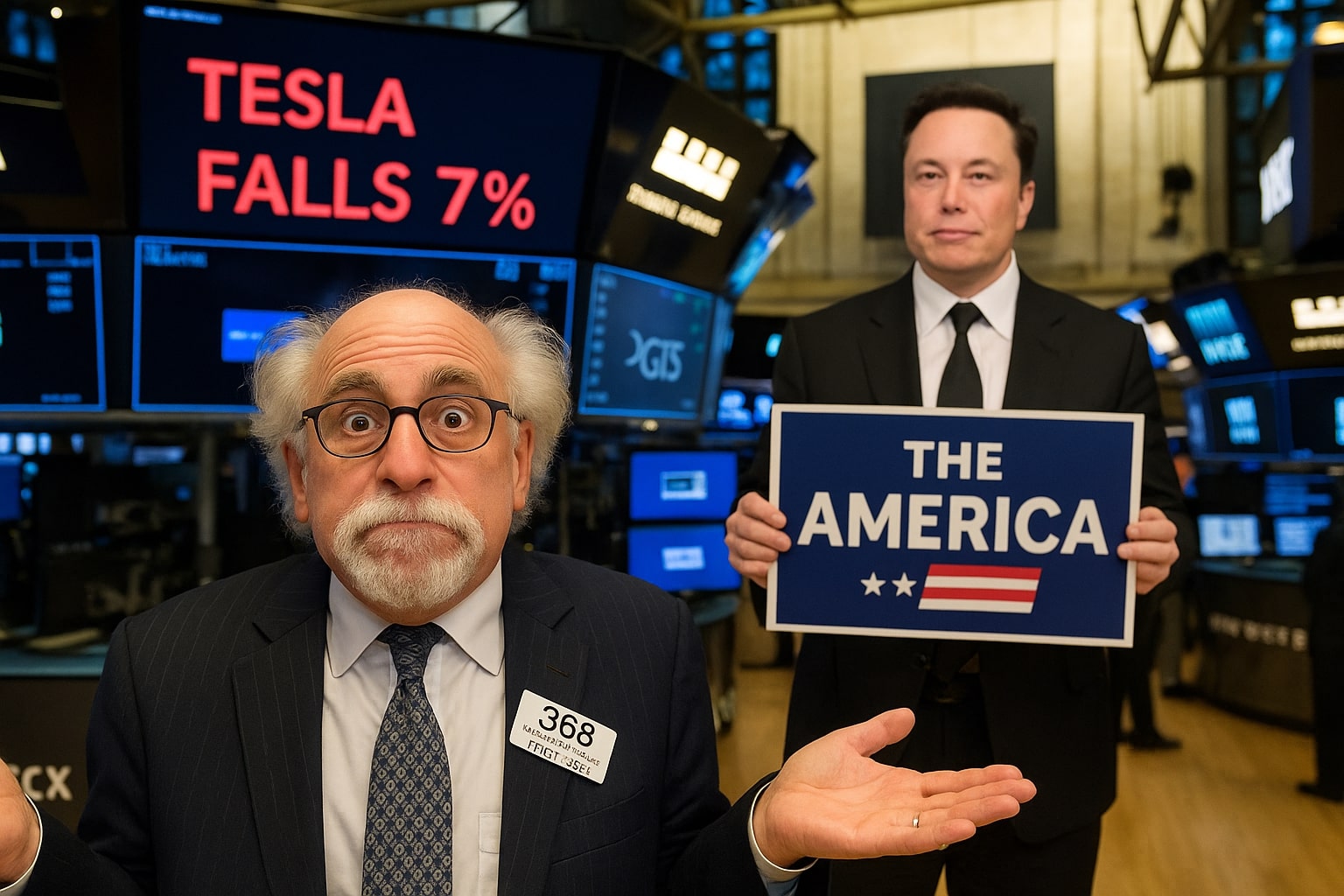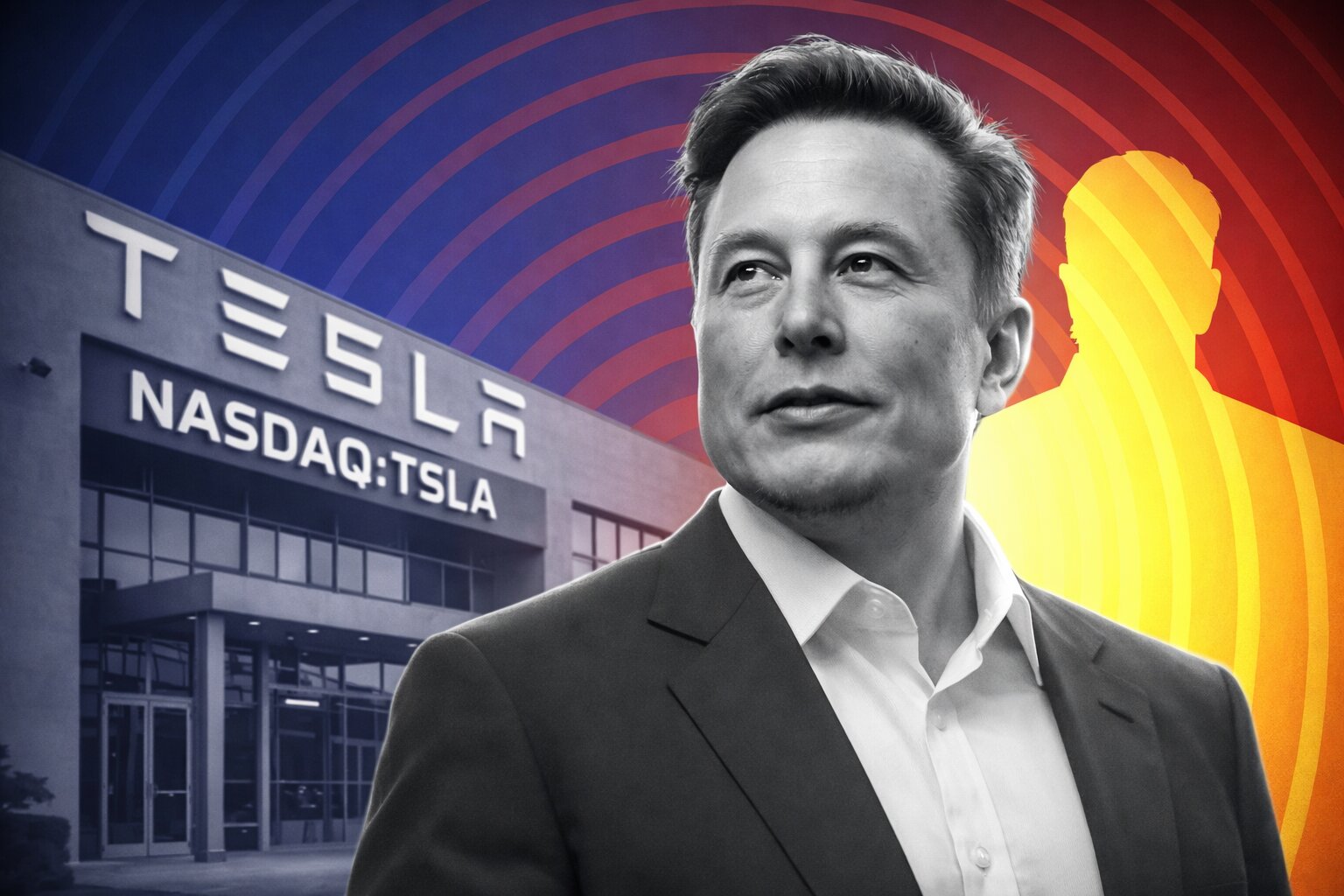U.S. Stock Market Update: Trade Uncertainty, Earnings, and Key Moves in Major Indices
Trade Turmoil and Market Decline: Impact on the Dow, S&P 500, and Nasdaq
On Monday, U.S. stocks encountered a significant pullback as President Trump’s fresh tariff threats injected uncertainty into the market. The Dow Jones Industrial Average (YM=F) dropped by 0.2%, while the S&P 500 (ES=F) retreated 0.3%, and the Nasdaq Composite (^IXIC) lost 0.5%. This marked a sharp contrast to last week's all-time highs, driven by a solid jobs report and a resilient economy. The tech-heavy Nasdaq, led by Tesla (TSLA), suffered a major setback as the company's shares dropped following CEO Elon Musk's announcement of his intention to launch a new political party, further exacerbating investor concerns.
Trump’s comments over the weekend, stating that any nation aligning with the "anti-American policies" of BRICS (Brazil, Russia, India, China, and South Africa) would face an additional 10% tariff, added to the growing concerns surrounding trade negotiations. While Trump’s tariff pause was expected to end on July 9, the new developments raised alarms that trade conflicts could further intensify, leading to volatility in the stock market. The tariff tensions cast a shadow over the S&P 500, which saw a decrease of 0.3% to settle at 6,259.56, and the Nasdaq, which closed at 20,493.68, down by 0.5%.
Tesla's Struggles: Impact of Musk’s Political Party Plans on TSLA
One of the standout stocks from the pullback was Tesla (TSLA), which saw a sharp decline of 7%, following Elon Musk's announcement of plans to form a new political party, the "America Party." Musk’s foray into politics has caused alarm among investors, especially after the company had already been under pressure from the looming expiration of EV tax credits. The $7,500 EV tax credit, which had been a significant incentive for Tesla's vehicles, is set to expire by September 30, adding more pressure to the company’s future sales projections. The political turmoil surrounding Musk is weighing heavily on Tesla's stock, with investors fearing that the new political party could damage the company's reputation and, in turn, impact its profitability.
Nasdaq and S&P 500 at Crossroads: Uncertainty Looms with Tariff Deadline
As President Trump's self-imposed tariff deadline of July 9 looms, the market remains uncertain about the potential outcome. Treasury Secretary Scott Bessent indicated that further trade deals would be finalized in the next few days, while Trump and Commerce Secretary Howard Lutnick confirmed that tariffs would go into effect on August 1, following a 90-day pause. As of now, countries like Vietnam and the UK have reached trade agreements, but critical countries like China and the European Union remain in negotiations. The market remains cautious, with the risk of tariffs escalating, especially with Trump’s latest tariff threat of an additional 10% duty on any nation aligning with BRICS.
Earnings Reports: Focus Shifting to Upcoming Releases
Earnings reports are once again taking center stage as Delta (DAL) is expected to report its Q2 results on Thursday. The S&P 500 and Nasdaq have been buoyed by a strong earnings season, with stocks at record highs. Delta’s earnings are anticipated to offer a fresh perspective on the broader economic outlook. Meanwhile, the Dow Jones Industrial Average (DJIA), currently down 0.2%, has been closely following trade developments, but investor focus is shifting towards the earnings season, where companies like Amazon (AMZN), Netflix (NFLX), and Tesla (TSLA) will be under scrutiny as key tech players lead the market's performance.
CoreWeave’s $9 Billion Acquisition of Core Scientific: Impact on AI and Crypto Stocks
In the tech sector, CoreWeave (CRWV), a major player in the AI cloud infrastructure space, announced its acquisition of Core Scientific (CORZ) for $9 billion in an all-stock deal. The news sent shares of Core Scientific tumbling nearly 18%, while CoreWeave saw its shares fall 4.6%. This acquisition highlights the growing intersection between AI and cryptocurrency mining, as the deal eliminates significant lease overheads, which is crucial in the evolving AI and cloud sectors. The market’s mixed reaction to the deal underlines investor concerns regarding profitability, with Core Scientific's future uncertain amid declining crypto prices.
BlackRock’s Expansion: A Bullish Signal for Private Markets
On a more positive note, BlackRock (BLK), the world's largest asset manager, has significantly expanded into private markets with the purchase of ElmTree Funds. The acquisition, valued at an undisclosed price, brings $7.3 billion in assets under management into BlackRock’s portfolio. This move strengthens BlackRock’s position in private equity and real estate, aligning with its broader strategy to offer more diversified investment opportunities. The deal positions BlackRock to capture higher margins in the private market sector, and signals confidence in the ongoing demand for private assets, especially as the shift from traditional public equity investments to private markets continues to accelerate.
Trade Tensions Impacting Global Markets: Dollar and Oil Prices Feel the Pressure
Trade tensions have also affected other sectors, such as oil prices. The OPEC+ decision to raise production by 548,000 barrels per day in August has triggered fears of oversupply, sending Brent Crude prices down to around $67 a barrel. The US Dollar (DXY), meanwhile, has seen a modest rebound, after reaching its lowest point in over three years. While the global currency market is currently in a quiet summer trading range, the looming trade developments and the rising risk of tariffs are likely to continue affecting investor sentiment and the broader market outlook.
Conclusion: A Market at a Crossroads Amid Trade Uncertainty
As the market continues to digest these developments, the Dow Jones Industrial Average (YM=F), the S&P 500 (ES=F), and the Nasdaq Composite (^IXIC) all face uncertainty from the escalating trade conflicts and the upcoming earnings reports. Tesla’s (TSLA) decline, combined with trade tariff concerns and the growing institutional interest in private markets through acquisitions like BlackRock's (BLK) move, suggests that there are multiple forces at play in shaping the future direction of the market. Investors are facing heightened volatility, and the outlook remains heavily dependent on how the trade dispute unfolds and how companies report their earnings in the coming weeks. The market may test new levels, with resistance around the current record highs, but the tariff situation will likely be the determining factor in the coming weeks.



















